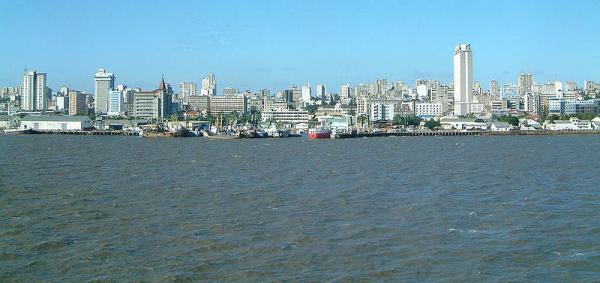Is Mozambique returning to war?

Frightening memories of the 16-year-long civil war have reignited in the minds of Mozambicans as tensions between RENAMO and FRELIMO reach a new high.
After 21 years of peace, RENAMO declared the end of the peace agreement they had with the ruling party, FRELIMO. Clashes between the two parties in the past year peaked this month with a military attack on the base where Afonso Dhlakama, the leader of RENAMO, resided.
The possibility of a new civil war is destabilising the country. Opportunists are using the tensions to run a series of ransom kidnappings targeting unsuspecting civilians. The failure of the police force to deal with this adequately, in one case even perceived to be collaborating with the perpetrators, is only fuelling the growing unrest and disappointment with the current ruling party.
Things took an interesting turn when RENAMO threatened to boycott the 2013 local elections as well the national general elections of 2014. Their absence from this year’s elections means that many of their supporters have chosen to vote for a new party, MDM, in the hopes that FRELIMO will lose its dominance.
RENAMO demanded political reforms, drawing a clear line between state and the ruling party, so that the various advantages FRELIMO enjoys ruling the nation can be restricted. It also asked for a more equitable share in the wealth of the state following the discovery of the world’s fourth largest gas reserve.
Failure by both sides to reach an agreement resulted in a frustrated Dhlakama and 800 of his former guerrillas leaving the capital city in October 2012 to move to their old military base in the centre of the country.
Dhlakama went as so far as to name President Emilio Guebuza as the “robber-in-chief of public funds”. A group of citizens have nicknamed President Guebuza Mr Guebusiness for his and his children’s business dealings with Vodacom Mozambique, Maputo Port Development Company, Cornelder de Mozambique as well as involvement in other successful businesses in the mining, construction, telecommunications, real estate and agricultural sectors.
The distrust in the state does not end there. There is growing discontent towards the level of corruption present in public institutions and the police force. The World Economic Forum ranks Mozambique 137 out of 148 in their 2013-2014 Global Competiveness Report, citing low public trust in politicians, weak public institutions, the red tape companies face to conduct business, and the perceived wastefulness of government spending as the major obstacles to sustainable growth and development.
There is growing discontent towards the level of corruption present in public institutions and the police force.
Growing discontent with the state threatens FRELIMO’s position as the ruling party.The local elections were held on 20 of November and the first results of the intermediate count came out showing growing support for MDM across the country. While FRELIMO retains pole position, their usual dominance in Parliament is being strongly challenged by the rise in popularity of MDM.
Some MDM voters took it upon themselves to monitor the recent local elections. When asked by the press why they chose to disobey the police and remain in the proximity of the voting polls, Custódio Albino said that they were there to “control their vote”, that they were “afraid that FRELIMO would misplace their votes and replace them with others in its favour”.
There have also been numerous reports of clashes between the police force and voters in Beira and Quelimane, the two cities where MDM support is at its strongest. The final results are still unannounced but MDM has already announced that they are going to contest the electoral results because of alleged vote rigging in FRELIMO’s favour in some cities.
Tensions are at a new high between FRELIMO and RENAMO after sporadic attacks by RENAMO on the army and civilians trying to pass through the only national road that crosses Mozambique from North to South.
The question now is will all parties involved avoid a second civil war in what seemed like a stable country until recently?
The author is a Mozambican national and a politics and economics Graduate. Follow him on Twitter @clashcorporate.
Support independent journalism
Donate using Payfast

Don't miss out on the latest news
We respect your privacy, and promise we won't spam you.

This article is licensed under a Creative Commons Attribution-NoDerivatives 4.0 International License.
